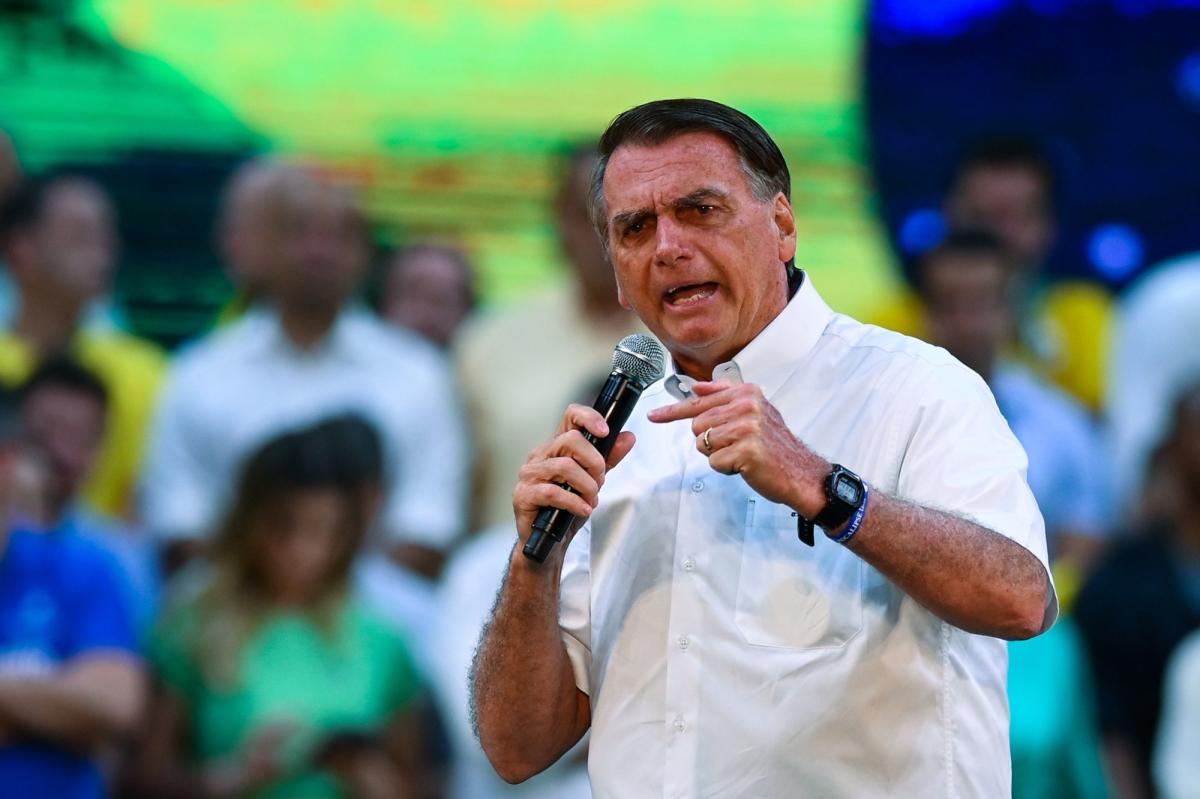
(Bloomberg) — President Jair Bolsonaro’s ability to further gain ground with voters less than six weeks before Brazil’s election depends largely on the impact of economic relief measures and his ability to moderate his rhetoric, according to leading pollster Ipec.
Most Read from Bloomberg
Approval of Bolsonaro’s administration has been slowly but surely improving this year and now stands close to 30% — a threshold above which past presidents have been re-elected, Marcia Cavallari, Ipec’s chief executive officer, said Wednesday at an event organized by Bloomberg in Sao Paulo.
The conservative leader, who trails Luiz Inacio Lula da Silva by more than 10 percentage points in recent polls, has unleashed an $8 billion aid package to ease the impact of inflation on the poor and sponsored fuel tax cuts that are largely benefiting the middle class.
While surveys have begun to reflect the impact of those measures, they’re not fully baked in yet, says Cavallari, adding that incumbents often get a popularity boost during the period of free TV and radio advertising that starts on Friday.
“The last movements we’ve seen greatly reduce the possibility of a decision in the first round,” she said. “We need to see whether Bolsonaro will be able to grow as much as other presidents have.”
In Brazil, a candidate needs to receive more than half of valid votes — which discount annulled ballots and those cast in blank — to win. If that doesn’t happen in the first round of voting on Oct. 2, a runoff vote will take place on Oct. 30 between the two front-runners.
What to Know About Bolsonaro-Lula Showdown in Brazil: QuickTake
Bolsonaro’s showing also depends on his own willingness to moderate the aggressive rhetoric that became his hallmark. Polls, including some run by his campaign team, show that frequent attacks on electoral authorities or the country’s electronic voting system tend to cost the president precious votes from moderate Brazilians.
“We need to see how aggressive the campaigns will be. People don’t want that, they don’t want this to turn into a war,” Cavallari said. “That could even lead Brazilians to change their votes to end the election in the first round.”
Unlike past elections, Brazilians have largely settled on who they’ll vote even with weeks to go before the vote, according to Cavallari, who’s worked with polls for over 40 years. Lula and Bolsonaro have a combined 80% of voter intentions in most surveys, with all other challengers failing to climb above double digits. While the left-wing former president still leads runoff polls by at least 10 percentage points, his gap with Bolsonaro has been narrowing there too.
“Lula’s challenge is to hold on to his position,” Cavallari said. “He can’t make any mistakes.”
Most Read from Bloomberg Businessweek
©2022 Bloomberg L.P.




